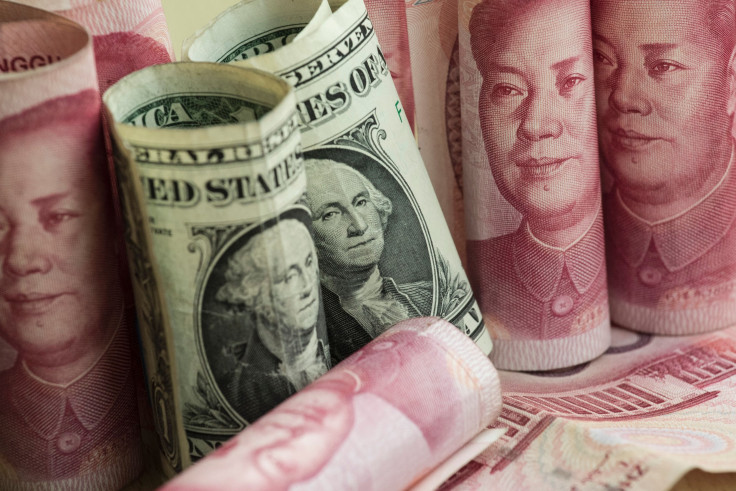China Yuan To USD: Beijing Sets Yuan Midpoint At 6.9996 Per Dollar

China signaled its intent to not engage in a currency war against the United States by setting the midpoint or reference rate of the yuan at a non-threatening RMB6.9996 to $1.00 Wednesday.
China’s quiet and de facto devaluation of the yuan on Monday was the catalyst for sending all three Wall Street indices plunging to their lowest levels so far this year. The Dow Jones Industrial Average plummeted 767.27 points, or 2.9%, to close at 25,717.74. It sank by as much as 961.63 points at one point. The S&P 500 fell nearly 3% to 2,844.74 while the NASDAQ Composite spun downwards 3.5% to 7,726.04.
Wall Street was expecting another bloodbath Tuesday but staged a surprising comeback as traders looked beyond the flood of bad news to focus on the positives. Wall Street seemed to take heart in the news that Yi Gang, governor of the People’s Bank of China (PBOC), indicated China won’t use the yuan as a tool to cope with external disturbances such as trade disputes.
Yi also said the yuan exchange rate is now at an appropriate level, and is in line with China’s economic fundamentals and market demand and supply.
The People's Bank Of China (PBOC) followed-up Yi’s statements by setting the official midpoint reference for the yuan at RMB6.9996 on Tuesday. This compared to the midpoint of RMB6.9225 on Monday morning before markets opened. The latter was the yuan’s weakest level since Dec. 3, 2018 and helped trigger the Wall Street rout that followed.
The Trump administration then labeled China a currency manipulator Monday afternoon.
China later pushed back hard against this categorization, saying the yuan’s depreciation Monday was a “normal reaction” to rising protectionism rhetoric from Trump and increasing trade tensions.
Global Times, a state-owned paper focusing on international issues, said the U.S. government “needs to stop fantasizing about a China surrender brought on by extreme pressure.”
“China would like to reach a trade agreement, but this does not mean it is timid ... when Washington increases tariffs, China will take necessary countermeasures,” said the newspaper in an op-ed.
Global Times said for the U.S. and China to “establish a trade relationship conducive for a win-win result,” both sides must be considerate and honest. It reaffirmed China will “not hesitate to take necessary countermeasures” if pushed.
The Trump administration objects to a lower yuan because it gives Chinese products a price advantage.
© Copyright IBTimes 2024. All rights reserved.





















